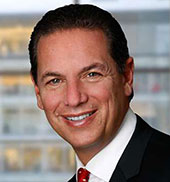Since the new Presidential administration took office late last year, the cannabis industry has received a mixed set of signals from this administration as to how it will treat the growing cannabis industry in relation to the Controlled Substances Act (CSA). In March 2017, Tracking Cannabis described a set of comments by Attorney General Sessions in which he indicated his strong skepticism regarding the legalization of recreational cannabis. Sessions stated:
I’ve said before that the President understands the pain and suffering that many people go through who are facing especially terminal diseases and the comfort that some of these drugs, including medical marijuana, can bring to them. And that's one that Congress ... put in an appropriations bill saying the Department of Justice wouldn’t be funded to go after those folks.
There is a big difference between that and recreational marijuana. And I think that when you see something like the opioid addiction crisis blossoming in so many states around this country, the last thing that we should be doing is encouraging people. There is still a federal law that we need to abide by in terms of ... recreational marijuana and other drugs of that nature.
So I think there’s a big difference between medical marijuana ... in accordance with the [the Rohrabacher-Farr Amendment], have set forth a process to administer and regulate that usage, versus recreational marijuana. That’s a very, very different subject.
This statement seemed to indicate that the Attorney General was willing to adhere to the Rohrabacher-Farr Amendment, focusing the DOJ’s cannabis enforcement efforts on recreational cannabis, rather than medical cannabis-related activities. However, a few weeks later, AG Sessions revisited the topic of enforcement against recreational cannabis, stating that the Cole Memorandum (indicating that the DOJ will not engage in enforcement activities against individuals operating legally under state cannabis programs in those states) is “valid,” and that the DOJ is not “able to go into a state and pick up the work that police and sheriffs have been doing for decades.”
These statements appeared to alleviate fears in the industry that the Cole Memorandum would be disregarded.
The Rohrabacher-Farr Amendment and a pivoting administration
On May 5, 2017, President Trump signed a budget bill that contained a one year extension of the Rohrabacher-Farr Amendment that not only extended its effective time periods, but extended it to those states and U.S. territories that have passed legalized medical cannabis programs. However, in doing so, the President issued a “signing statement” commenting on the amendment:
Division B, section 537 provides that the Department of Justice may not use any funds to prevent implementation of medical marijuana laws by various States and territories. I will treat this provision consistently with my constitutional responsibility to take care that the laws be faithfully executed.
It is unclear what the President’s comment may indicate on a going-forward basis, but the fact that the statement was included has raised questions among members of the industry. When combined with the statements made by Attorney General Jeff Sessions, the industry continued to be hopeful that the current administration would leave the regulation of cannabis, at least medical cannabis, to the states.
However, on June 12, 2017, a letter written by AG Sessions on May 1 was released detailing his opposition to the extension of the Amendment. In the letter, addressed to Speaker of the House Paul Ryan, Senate Minority Leaders Nancy Pelosi and Charles Schumer, and Senate Majority Leader Mitch McConnell, Sessions sought to “renew the Department of Justice’s opposition to the inclusion of language in the appropriations legislation that would prohibit the use of Department of Justice funds or in any way inhibit its authority to enforce the Controlled Substances Act (CSA).”
In doing so, Sessions cites to the 2016 “National Drug Threat Assessment” (a document released periodically by the DOJ outlining the state of the impact drugs have on the U.S.) for the proposition that not only does the DOJ see a “potential long-term uptick in violent crime” related to drug use, and for the fact that foreign criminal organizations are operating illegal cannabis programs in states where cannabis has been legalized. (See page 115 of the Assessment.) AG Sessions also cites to the 2016 9th Circuit case of United States v. McIntosh, which enforced the Rohrabacher-Farr Amendment, prohibiting the prosecution of individuals who had not been found to be in violation of state cannabis-legalization laws.
AG Sessions’ letter, at is core, requests the repeal of the Rohrabacher-Farr Amendment, to extinguish the legal barriers between the DOJ and its ability to enforce the CSA. Maybe one of the most disturbing points of AG Sessions’ position is that he continues to reiterate that the use of cannabis is related to the opiate addiction crisis. Yet studies seem to indicate that in those states that have had a legalized cannabis program, the abuse of drugs has decreased. So to ask Congress to reverse itself on the basis of what appears to be an incorrect conclusion and, at best, broad sweeping statements in the National Drug Threat Assessment seems unreasonable.
There are no known written responses to the letter from any of the recipients, however, members of the cannabis industry should keep an eye on Tracking Cannabis as the administration’s cannabis enforcement efforts continue to develop. If you have any questions about the impact of federal legislation on the cannabis industry, the Rohrabacher-Farr Amendment, or any other issues related to cannabis businesses, please feel free to contact us.
















